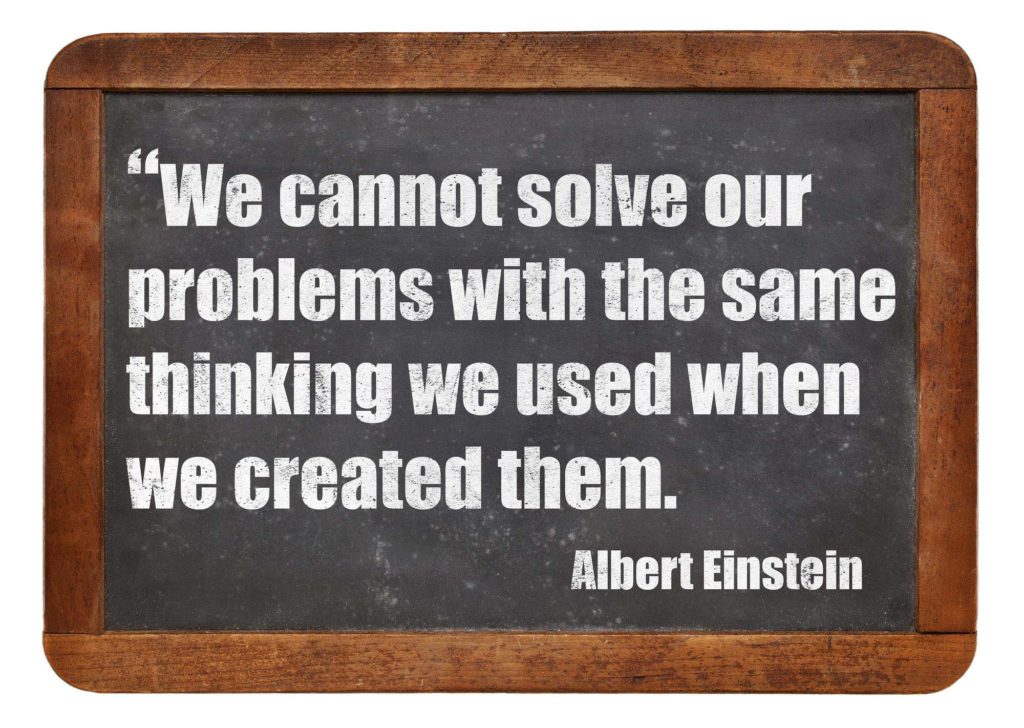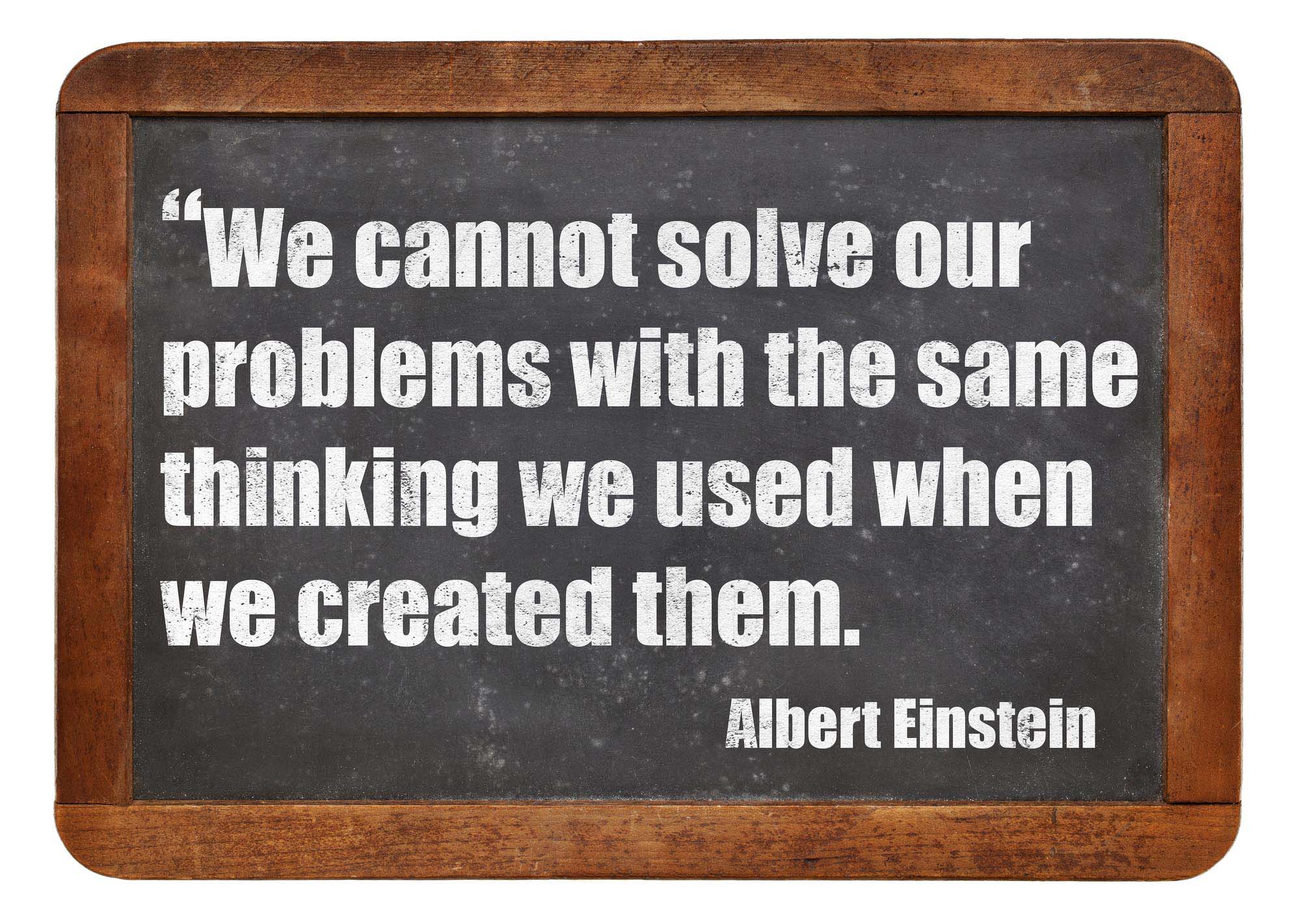
What is the most recent problem solving situation that you have personally faced in the past few days?
How did it turn out?
Did you know that one trait of a person who is living a resilient life is the ability to problem solve and make good decisions?
I don’t know about you, but it seems that in the past few years with the rise of smartphones, tablets, and social media we are overwhelmed with choices which have lead to real problems for some people and that is in the are of decision making and problem solving.
There seem to two primary mindsets that keep people from dealing with the stuff in their lives. At least from my observations after living on this blue marble for over six decades.
The first is the Big D word, Denial. People that choose to live in this lane of life tend to deny the impact of problems and issues in their lives at all costs. They do their best to live in the delusional state of denial because they are scared spitless of seeing the reality that is right in from of their eyes. Because of this mindset, they develop finely tuned skills to avoid some of the tough things in life.
So where do you think this type of living leads a person? Well, in my opinion, this denial mindset will lead you down a twisted path of insecurity, anxiety, worry, fear, anger, frustrations, jealousy and a whole lot more of yucky stuff.
The second mindset of people who avoid dealing with life issues is that of being a perpetual victim. While this mindset has been around for thousands of years, it seems to be enjoying a new surge in this modern age.
The Victim mentality. People with this mindset choose to believe there is not a single that they can do to solve a problem or deal with their stuff. When, in more cases than not, they could. I have said this before, but it is like some people want to play emotional pin the tail on the donkey. They are continually seeking ways to blame either others or circumstances for all that is going wrong in their lives.
While it might give the person choosing to be a victim a little bit of relief, it will ultimately lead to anger, emotional impotence, learned helplessness and despair.
Why do so many people choose to swim in the river of denial or attempt to pin the emotional tail on the donkey by blaming circumstance on others?
The simple reason, I think is because there is a quick payoff. It gives them a rush, a buzz, and maybe some relief to push the responsibility off on someone or something else. It is a quick fix that allows the person, at least for a moment to escape life’s problems as opposed to seeing problems as an invitation to growth, and change to learn something and maybe experience grace and goodness.
Let me ask you a question.
What do you do when it comes to dealing with some of the problems that come from being a human? Do you run from them, deny them, or blame your parents, upbringing, your ex or your diagnosis? Your answer will determine whether your life will be enriching, rewarding or bland and mundane.
In my counseling and coaching practice, one of the first questions I ask a client is something along the lines of how can I help you? The replies usually sound “I want to be happier. I want more peace in my life. I want to be more successful. I want to improve my relationships.” All of these are worthy goals.
Typically, after we talk about that for a few minutes, at least to the point that I feel I have some understanding, I will they ask something like, “What are you willing to do to get it? What are you ready to change? What problems do you anticipate and how will you deal with it?
At this point, things seem to come into clear focus.
I remember a few years ago I was asked to be on the faculty of a writer’s conference at the Glorieta Christian Writer’s Conference at what used to be the Glorieta Baptist Conference Center. Part of my job was to visit with hopeful writers and authors about their dreams. Needless to say, it was a blast being able to participate in such a great event.
I remember, one of the benefits of attending this conference is that every day the staff would meeting in this large room to visit with and listen to aspiring writer’s pitching their book ideas. This was always an exciting and impressive time to meet these people, listen to their stories and proving encouragement, maybe even some further networking opportunities.
And then I began to pick up on a trend. I spoke in a massive group session on the second day and when people realized that I was a licensed professional therapist I was inundated with potential authors who wanted to tell me of their travail of abuse, and neglect. As I listened to some of these stories I begin to feel like I was back in my office as a therapist. Not a great place to be when you are providing the types of services we were at the Writer’s Conference. At dinner that evening I was processing this sudden increase in authors wanting my input to their stories with a couple of older, female authors that I really respected. Their insight was invaluable. Luckily I’d asked several of the women who’d shared their story idea with me to check back with me the following day.
Here is how it went.
Five of the ladies came back the next day, as well as a few whom I’d not yet met.
I made sure I was listening and tracking each of these unique and painful stories that these potential authors were sharing with me. And then I would say something like, “Would you like my input and suggestions? To a person, they all said yes. Here was my reply.
I want you to look around this room and see how many women are here. According to the National Sexual Violence Resource
After I made that statement, I’d keep quiet and hope that they would ask a follow-up question and they did. After the initial shock of my statement they would ask, so what did I need to do.
This is the essence of what I told them. I would start off by telling them how proud I was that they were making a bold choice to share their story, but that to separate their story from everybody else they had to share how they addressed the problem of abuse and how they overcame it. I suggested before they wrote another word in their transcript that they exam what they were learning. In marketing terms, which you might feel is a little harsh, what was their unique selling point.
What was the principle, purpose, promise or prayer they were learning or had learned as a result of no longer denying their abuse and no longer blaming others for how they were dealing with the abuse?
I have to tell you the truth here, I did not want to hurt any of the women, but at the same time I wanted to challenge them to dig deep within and write their story of how they, with God’s help, found the courage to face their challenges and move from being a victim to an overcomer.
Over the next twelve to eighteen months I heard from several of these writers who thanked me for my comments. Two of them invited me to read and comment on their drafts, and a few of the others sent me notes and emails regarding my gently calling them out. I have to tell you, these women dared to not buy into the Denial Trap or the Blame Trap. And while there is a special place in Hell for people who sexually abuse other people, these ladies absolutely refused to let the perpetrator win.
These writers wanted a better life. They were beginning to understand that real, honest, long-term fulfillment comes through how we choose to confront and manage our struggles.
To be clear, I am not talking about “no guts no glory” or “no pain, no gain.”
Instead, how we face and manage our struggles, in large part determine our happiness and our success in this present life.
My wife says it best, “We are either in a struggle, coming out of a struggle, or preparing for a struggle.”
I think she is right on target. How about you? How are you managing the problems that come at you in your day to day life?
Ancient Wisdom
“I don’t mean to say that I have already achieved these things or that I have already reached perfection. But I press on to possess the perfection for which Christ Jesus first possessed me. No, dear brothers and sisters, I have not achieved it, but focus on this one thing: Forgetting the past and looking forward to what lies ahead, I press on to reach the end of the race and receive the heavenly prize for which God, through Christ Jesus is calling us.”
Philippians 4:12-14 NLT
Be sure to read my next post, when I will talk about a third way to deal with problems, which I call resilient decision making.
I would love to hear your thoughts.


